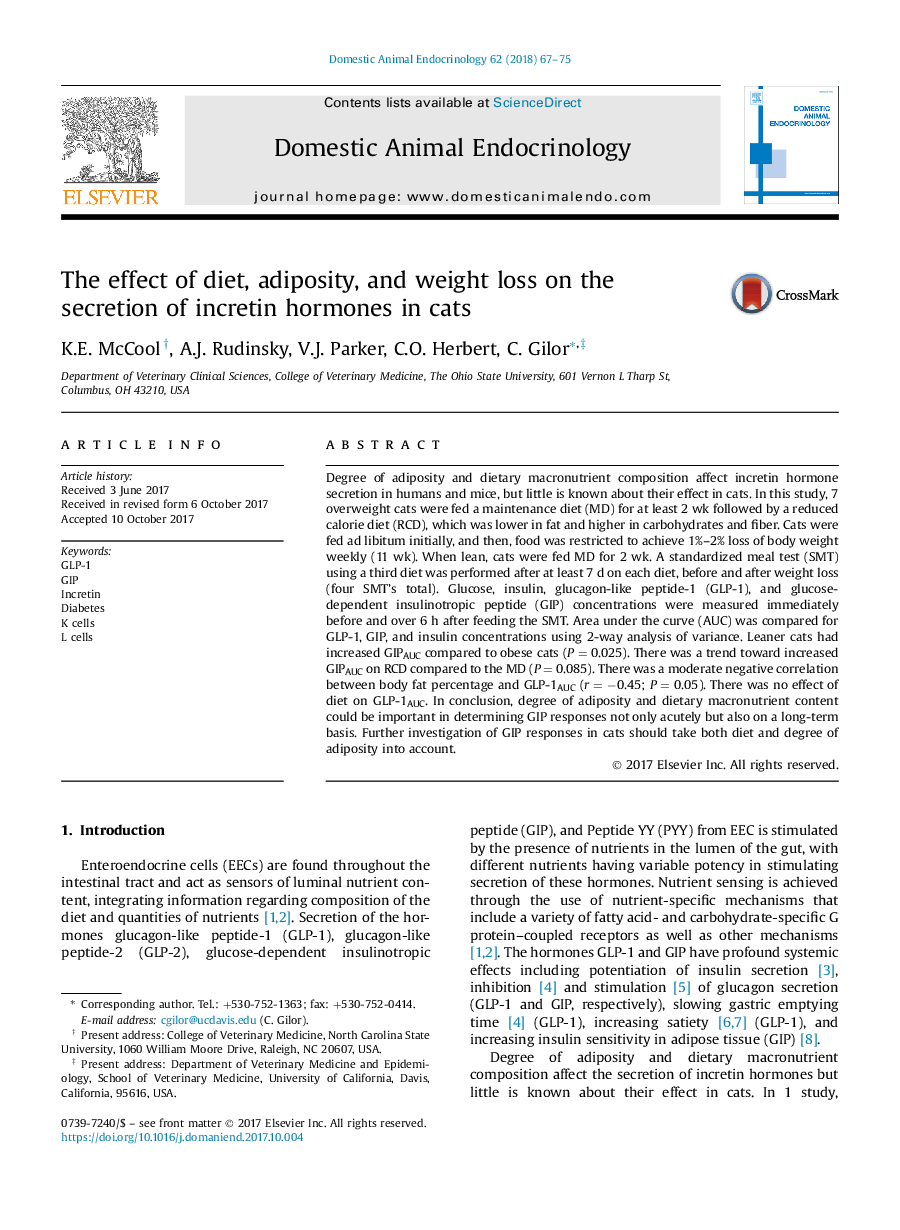| Article ID | Journal | Published Year | Pages | File Type |
|---|---|---|---|---|
| 8481961 | Domestic Animal Endocrinology | 2018 | 9 Pages |
Abstract
Degree of adiposity and dietary macronutrient composition affect incretin hormone secretion in humans and mice, but little is known about their effect in cats. In this study, 7 overweight cats were fed a maintenance diet (MD) for at least 2Â wk followed by a reduced calorie diet (RCD), which was lower in fat and higher in carbohydrates and fiber. Cats were fed ad libitum initially, and then, food was restricted to achieve 1%-2% loss of body weight weekly (11Â wk). When lean, cats were fed MD for 2Â wk. A standardized meal test (SMT) using a third diet was performed after at least 7Â d on each diet, before and after weight loss (four SMT's total). Glucose, insulin, glucagon-like peptide-1 (GLP-1), and glucose-dependent insulinotropic peptide (GIP) concentrations were measured immediately before and over 6Â h after feeding the SMT. Area under the curve (AUC) was compared for GLP-1, GIP, and insulin concentrations using 2-way analysis of variance. Leaner cats had increased GIPAUC compared to obese cats (P = 0.025). There was a trend toward increased GIPAUC on RCD compared to the MD (P = 0.085). There was a moderate negative correlation between body fat percentage and GLP-1AUC (r = â0.45; P = 0.05). There was no effect of diet on GLP-1AUC. In conclusion, degree of adiposity and dietary macronutrient content could be important in determining GIP responses not only acutely but also on a long-term basis. Further investigation of GIP responses in cats should take both diet and degree of adiposity into account.
Related Topics
Life Sciences
Agricultural and Biological Sciences
Animal Science and Zoology
Authors
K.E. McCool, A.J. Rudinsky, V.J. Parker, C.O. Herbert, C. Gilor,
